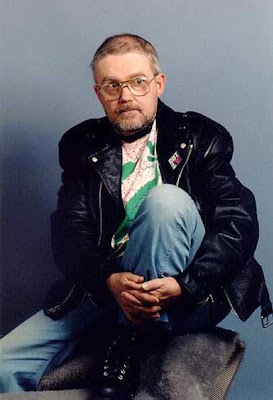A Day at the Races

On Saturday I went to Saratoga, New York to see the historic victory of the female horse Rachel Alexandra over her all male competition. How did I manage to go to one of the most expensive racing events in the country? Well, my friend Jordan Williams was in town, visiting from Seattle where he is a computer guru for Bechtel.

Also attending was photographer Jeff Ziff, heir to the Cray Soda fortune.

For some reason they voluntarily paid for the company of this poverty stricken old stoner with attitude from Pine Point, yours truly. I was really out of my element in this land of limos.

Say what you will about the bad economy, the joint was packed to the walls with gamblers.

However, I spoke to a few of the vendors and they said merchandising sales were down by about twenty percent compared to last year. And not everyone paid for the top dollar digs we had. Many were camped on picnic tables outside the track and watched the races on TV screens.

In the luxury pavillion where we were there was also a massive screen right in the middle of the track itself.

A giant tote board also helps you to keep on top of the races.

Horse races have been held here since the Civil War, and the scene is steeped in tradition. Many people wore old fashioned clothes, like this cigar chomping and suspendered high roller.

Not everyone fit the stereotype, like this guy who had an intriguing Herman Munster tattoo.

Who says print is useless? Someone thought these publications would make good bench cushions.

Not surprisingly, the girl versus the guys angle was played up everywhere, sometimes in kinda sexist ways.

The roses being sold in Rachel's honor were predictably pink.

On the way out we ran into John Walsh of America's Most Wanted fame.

We thanked him for the work his show has done to try to solve the murder of my fellow boy scout trooper Danny Croteau.

In all the trip was an exciting finale to the summer of 2009.
Poetic Underground
Every so often a mysterious group called The Drive by Poets flood downtown Northampton with poems. Most of the poems are ignored and unread, but to an enlightened minority they are ultra-cool.
Here's the latest:
by Kristen Sund
I never used to drink this much
Then a guy I knew fell in love with me
because of the way I laughed
when I was drunk.
I thought it was ridiculous.
But now I am staying with you
for no reason other than
I like the way you write with dashes.
You're the only one I know
who uses them correctly.
Every man before you
was a bad writer
Those never worked out.
They all ended up disappointing me,
because none of them knew how to say
the only thing I needed to hear.
Listen,
When I tell you I don't think
I could write one more sentence
all you have to say is: you could.
To submit your poem for consideration by Drive by Poets email drivebypoets@gmail.com



































